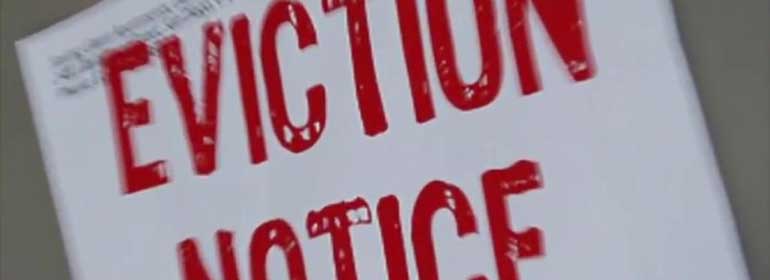What have the national movement against home repossessions and evictions and the LGBT community got in common, asks Finbar Markey?
One of the most pressing matters, indeed a crisis of epic proportions facing nearly every sector of Irish society today, is mass repossessions and evictions. Across the nation hundres of thousands of men women and children, some estimate up to half a million people, are facing a bleak now and bleaker future without a place to call home. They have been hounded for the last number of years by banks for mortgage repayments from another time and place, a time and place we all now accept as beyond irrational, a time of collective madness. Ireland may not have the climate of Greece or Spain but we have an eviction crisis of similar if not worse proportions.
Equally, thousands more are condemned to pay extortionate mortgage payments for the next two decades, meaning that our national domestic economy, an economy that members of the LGBT community have an equal right to benefit from and influence, will not grow for the same period.
Many of those homeowners and business people are part of the LGBT community, and I argue as a gay man that the LGBT social bloc remains as silent on the crisis at hand as other groups in society. But now more than ever, we should finally take our seat at the table of equity, social inclusion and responsibility by joining the movement against mass evictions. The silence must be lifted if we as a community of communities are to see better times into the future.
The LGBT community, those who feel part of a tangible community and those on the fringes, share a history of social disenfranchisement that, although different in terms of cosmetic detail, has the essential characteristics of the disenfranchised in general, whether it be race minorities, the inequality of women or the poor etc. There is shroud of silence woven around mortgage arrears, with an imagined sense of shame and a perceived damage to public persona that opening up about one’s mortgage arrears may entail. Instead, people choose an impoverished lifestyle, shadowed by anxiety and depression, with many making hasty existential decisions. They are the new disenfranchised and are not versed in the power of collective action.
Common Ground
Shame is a weapon given unto the oppressor by the oppressed. Is this not one of the painful principles grafted onto the LGBT group psyche and our own very personal memories? We know shame, but we also know pride. Each of us knows struggle, at least at a personal level, if not a social or political one. The contribution of today’s matured and increasingly equal gay community, having wrestled its status from the hands of those who wished to maintain an unshakeable status quo, is essential for today’s struggle for social and economic justice in Ireland. The experiences of LGBT people in demanding their rights and dignity can only contribute to the cause.
There is also an obvious common ground from a material/economic point of view that I alluded to earlier. Men, women and children of every age and background across Ireland face eviction, while farms and businesses are being put into receivership all over the country and being sold off to absent investors abroad. Apart from the terrible effect this has and will continue to have in terms of disposable income, when all of those homes and properties hit the marketplace property prices in general will go through the floor. This economy belongs to the LGBT people of Ireland as much as it does any other social grouping. We have personal, social and economic investments and ties in it, and we must start becoming more involved in salvaging and shaping it.
Sitting Equally At The Table
Each and every LGBT person has something to contribute, something that can bring real and immediate change. In the National Land League of Ireland we run day-centres in numerous counties for people facing losing their homes. We run workshops to educate people at a local level on how to legally stay in their homes, we lobby and agitate and we even turn up to family homes on request to stop evictions. I believe as a LGBT person I have a part to play in this fight for a new Ireland. Sitting equally at the table of social inclusion means more than the acknowledgement of our rights, but also being engrained with a sense of concern for the just causes of our social partners. Indeed, as members of the LGBT community we are also members of other social groupings at the same time.
The LGBT community, like all communities, is at its finest when standing up for itself and others, when rising from its trembling crouch. One instance of fiery LGBT social strength and beauty was portrayed in the BAFTA award winning Pride, a film about a London gay rights group that supported the Welsh miners during the 1980s strikes. To the viewer, however, the link between celluloid accounts of events and the fact that they actually happened is often lost. We are inspired by the movie or the book, we might be moved to tears, but do we take that step to realising that each and every one of us has it in us to make change beyond our daydreams and to act upon that realisation?
We live in a real-time of social change, upheaval and potential, a time of heroism and nation building. Isn’t it time the LGBT community weighed in?
Finbar Markey is General Secretary of the National Land League of Ireland, an organisation comprising of county branches throughout the country aiming to halt the looming mass eviction of men, women and children in Ireland and to negotiate a write down on all mortgages taken out between 2000 and 2011. Find out more here.
© 2015 GCN (Gay Community News). All rights reserved.

comments. Please sign in to comment.